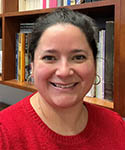Resources for upper-level departmental/faculty advisors.
First-year advisor information located at firstyear.mit.edu.
Departmental Advisor Events
Engagements designed to support both new and returning departmental/faculty advisors.
Learn moreTips for Advising Success
Based on data from the UAC’s 2027 Sophomore Advising Assessment Analysis (Feb 2025) and 2028 Advising Assessment Full Report (May 2025)
| What Students Want | Tips for Advisors |
|---|---|
| Help planning classes and thinking ahead | Ask how they’re approaching semesters. Offering to review or sketch out a four-year plan can make a big difference. *Encourage advisees to come to registration appointments with planning in mind so that the appointment is best utilized. |
| More proactive communication | A quick check-in email once or twice a semester can go a long way in showing support! |
| An advising relationship that feels like more than signing forms | Take a few minutes to ask about their interests or goals. Even a small personal connection can make advising feel more meaningful. |
| A space to talk about careers | Asking about long-term goals can open the door to a helpful conversation or referral. |
| Opportunities to connect casually | Department events or more relaxed conversations help build rapport. Students appreciate when advising feels approachable and not overly formal. |
Departmental Advisor Syllabus
A fully customizable document to use during advising meetings.
Find it hereFrom the Source: MIT Departmental Advisors’ Tips
Ideas and tips on what has worked from departmental advisors.
Professor Maria Yang, Course 2, Interim Dean of the School of Engineering

What is your role within your department?
– I’m a professor who works in the area of product design and development.
Using three words, how would you characterize advisees in your department?
– motivated, engaged, innovators
What’s your favorite part about advising? What’s the most challenging?
– My favorite part is hearing about what students want to do with their lives and help them think about different ways to get there. It’s fascinating how many paths students consider, and how these evolve over their four years. The most challenging part is knowing when a student needs extra attention, say if they get sick in the middle of the semester and it seriously impacts their schoolwork. MIT has terrific support but some students don’t realize that they can reach out and get help.
Share one piece of advice for new department advisors that you wish you’d known when you began.
– Understanding departmental requirements can be quite confusing for anyone new. I was lucky that I had been an undergraduate and had a good sense of the program, but even with that, I still ask our undergraduate academic administrator questions and also don’t hesitate to send students to talk to them. MechE has always had wonderful academic administrators (including our current one, Emma Dunn) and they are always helpful and caring.
• • • • • • • • • • • • • • • • • • • • • • • • • • • • • • • • • • • •
Dr. Andrew Wang, Course 6, Instructor

What is your role within your department?
– I am a lecturer in computer science.
Using three words, how would you characterize advisees in your department?
– With so many students in EECS, they exhibit nearly the full diversity of the undergraduate population, so it’s hard to pin down their characteristics. I would say that like in any large student body, our advisees are exposed to student perspectives that we don’t always see, and it can be useful to hear what they know.
What’s your favorite part about advising? What’s the most challenging?
– It’s always a pleasure when I get to see my advisees in person. Feeling their energy greatly facilitates having deeper conversations about their interests and goals. The hard part is simply keeping up with the volume in our department!
Share one piece of advice for new department advisors that you wish you’d known when you began.
– Advising can be a collaboration with the department’s academic programs office. When advisees have petitions or special requests, it often helps to loop in the office staff to keep everyone on the same page.
• • • • • • • • • • • • • • • • • • • • • • • • • • • • • • • • • • • •
Theresa Cummings, Course 18, Assistant Director of Programs

What is your role within your department?
– Assistant director for academic programs.
Using three words, how would you characterize advisees in your department?
– focused, diverse, and busy
What’s your favorite part about advising? What’s the most challenging?
– My favorite part of advising students is helping a student overcome challenges they have encountered. The most challenging is getting the students to understand they can’t always get their way.
Share one piece of advice for new department advisors that you wish you’d known when you began.
– My advice is always to not assume and to dig for the story the student isn’t telling. Get the big picture before looking at the smaller picture.
• • • • • • • • • • • • • • • • • • • • • • • • • • • • • • • • • • • •
Emma Dunn, Course 2, Assistant Director of Undergraduate Programs

What is your role within your department?
– Assistant director of undergraduate programs in the Mechanical Engineering department.
Using three words, how would you characterize advisees in your department?
– Extraordinary, visionary, and unstoppable!
What’s your favorite part about advising? What’s the most challenging?
– My favorite part of advising is having meaningful conversations and building authentic connections with students. I love when students open up and share their unique perspectives and the extraordinary journeys that brought them to MIT. These conversations often touch on definitions of success, identity, and purpose.
I especially love when I can help put a student’s mind at ease. Whether it’s helping them reframe how they see the situation or figuring out a better path forward, those moments are incredibly rewarding. The most challenging part is hearing how many students feel like they are the only one struggling or feel like they’re not doing enough. So many experience “imposter syndrome” at MIT, despite being remarkable in so many ways. I wish they could see themselves through the lens that others do—and realize that many of their peers are feeling the same way, even if it’s not outwardly visible.
Share one piece of advice for new department advisors that you wish you’d known when you began.
– Connect with your Undergraduate Academic Programs Office! They will be a world of help to you and your students.
• • • • • • • • • • • • • • • • • • • • • • • • • • • • • • • • • • • •
Josh Ramos, Principal Lecturer and Manager of the Laboratory for Manufacturing and Productivity (LMP)

What is your role within your department?
– I’ve been involved in teaching design and manufacturing courses for many years in the Mechanical Engineering department. Right now I teach project-based manufacturing courses and I’m the manager of the LMP Shop in Building 35.
Using three words, how would you characterize advisees in your department?
– Curious, Ambitious, Fun!
What’s your favorite part about advising? What’s the most challenging?
– The best part about advising is watching how quickly the students grow while they are here at MIT. Many students start out being cautious and intimidated by classes, peers, and the workshop tools our engineering students use. That changes quickly and by the time they are seniors all of a sudden there isn’t enough time to do everything they want to do while they are here on campus!
The most challenging part of advising is helping students with problems that reach outside the bounds of being purely academic. Every student is striving to balance academics, extracurriculars, family life, relationships, and more. Most academic problems can be solved by finding out who to email or contact for more information. Supporting someone who is going through a hard time personally is quite a bit more difficult.
Share one piece of advice for new department advisors that you wish you’d known when you began.
– Remember, when you are sending someone a message or meeting with them in person, you never really know how much they might need your support at that moment. Don’t hesitate to include an extra exclamation point in your email or a joke in your conversation. Small gestures like that can definitely make a difference, putting people at ease in situations where you might not even realize they may be anxious or feeling tense.
• • • • • • • • • • • • • • • • • • • • • • • • • • • • • • • • • • • •
